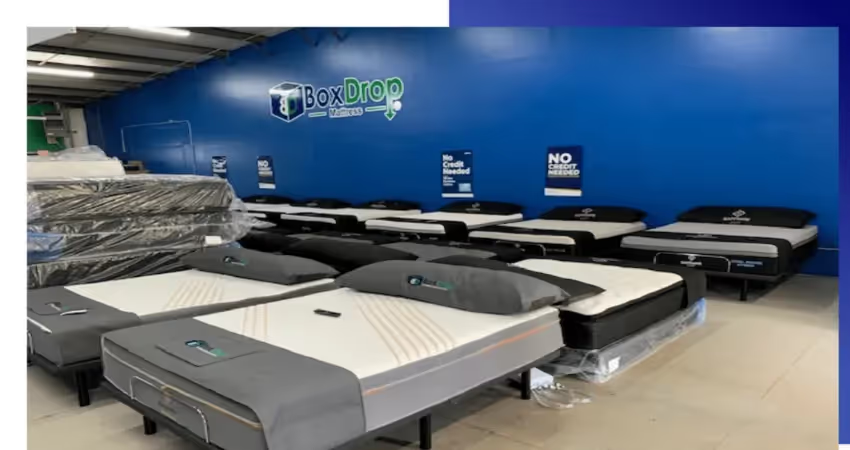Franchise Opportunities By Industry
Franchise Opportunities By Location
Franchise 101
By Investment Level
Franchise Consultant
White Paper
Playbook
Franchises are a popular way for entrepreneurs to start their own business. However, starting a franchise can be costly, with initial fees, ongoing royalties, and other expenses. Fortunately, there are many cheap franchises available for those who want to start a business without breaking the bank. In this article, we'll explore some of the best options for cheap franchises.
When evaluating a cheap franchise opportunity, there are several factors to consider, including:
Initial investment: Cheap franchises typically require a lower initial investment compared to more established or expensive franchises. It's important to evaluate the initial investment to ensure that it's within the franchisee's budget and that it's enough to cover the start-up costs.
Return on investment (ROI): As the initial investment is lower for a cheap franchise, it's important to evaluate the ROI to ensure that it's reasonable and achievable. This can include analyzing the potential revenue and profits of the franchise compared to the initial investment.
Flexibility: Cheap franchises may have fewer restrictions and requirements compared to more established or expensive franchises. It's important to evaluate the level of flexibility in terms of operating procedures, marketing strategies, and business practices to ensure that it aligns with the franchisee's goals and preferences.
Scalability: Cheap franchises may have more room for growth and expansion compared to more established or expensive franchises. It's important to evaluate the potential for growth and expansion, as well as the support provided by the franchisor in terms of expanding the business.
Risk: Cheap franchises may have a higher level of risk compared to more established or expensive franchises. It's important to evaluate the level of risk involved and to have a contingency plan in case the franchise doesn't perform as expected.
Discover the best franchises that combine affordability with opportunity. Our curated list highlights the top franchises offering low franchise fees under $15,000, providing an accessible pathway to entrepreneurship. Explore these cost-effective options to start your business journey with minimal financial strain.

Founded in: 2012
Franchising since: 2013
Minimum Cash Reqiured: $10,000
The Eazi-Sites franchise offers an enticing opportunity to start a web development business with comprehensive support, targeting local businesses in need of advanced online solutions. This franchise is distinguished by its complete "Business-in-a-Box" model, which is specially designed for entrepreneurs without technical backgrounds. The package includes everything necessary to launch and manage a business: live training, one-on-one coaching, a dedicated Marketing Hub, a Sales Center, and the backing of a world-class technology suite. Services offered range from mobile app development to lightning-fast websites, eCommerce solutions, SEO, social marketing, and reputation management.
Unique to Eazi-Sites is the provision of initial business setup tools such as a landing page, business cards, print materials, and crucial sales training, which are not typically offered at the onset by other franchises. This approach allows franchisees to establish a strong business foundation and hit the ground running, significantly reducing the startup challenges that many new entrepreneurs face.
Eazi-Sites empowers franchisees to build their own businesses from scratch with a strong support system, setting it apart in the competitive field of digital services franchising.
Here's a table outlining the pros and cons of the Eazi-Sites franchise:

Founded in: 1981
Franchising since: 2001
Minimum Cash Required: $10,500
The OctoClean franchise offers a unique opportunity to own and operate a commercial cleaning business supported by a company with a strong regional presence in Southern California and Phoenix, Arizona. This franchise is tailored for individuals who want to leverage their prior experience in the industry or for those looking to enter a new field with substantial support and training.
A unique feature of the OctoClean franchise is its emphasis on teaching franchisees not just the technical aspects of cleaning but also essential business skills such as time management, responsibility, and effective communication with diverse personalities. This holistic approach to franchisee development is designed to prepare owners for a variety of challenges and opportunities in the business world, distinguishing OctoClean from other cleaning service franchises that may focus solely on operational training.
OctoClean provides a robust support system and a business model that includes cleaning services and a focus on franchisee growth and development, making it a standout choice for potential franchise owners.
Here's a table outlining the pros and cons of the OctoClean franchise:

Founded in: 1991
Franchising since: 1992
Minimum Cash Required: $495 - $10,500
Dream Vacations offers a franchise opportunity in the travel industry, specializing in providing customized vacation experiences. As a home-based franchise, it offers a significant level of flexibility and lower overhead costs compared to traditional brick-and-mortar travel agencies. This makes it an attractive option for entrepreneurs looking to enter the travel market with a recognized brand behind them.
A unique aspect of the Dream Vacations franchise is its strong focus on franchisee support and community. Franchise owners benefit from an extensive network that provides valuable resources and a sense of confidence that is difficult to achieve independently. This community-centric approach, combined with comprehensive training and marketing support, ensures franchisees are well-equipped to succeed in the competitive travel industry.
Here’s a table outlining the pros and cons of the Dream Vacations franchise:

Founded in: 1994
Franchising since: 1999
Minimum Cash Required: $695 - $10,995
The Cruise Planners franchise offers a vibrant and lucrative opportunity in the booming travel industry, allowing franchisees to operate as travel advisors with a focus on cruise planning. What sets Cruise Planners apart in the industry is its position as a low-cost franchise that provides significant flexibility, allowing franchisees to work from anywhere and manage their businesses with great autonomy.
A unique fact about Cruise Planners is its response to the surge in travel demand post-pandemic. The company emphasizes that now is an unparalleled time to join the travel sector due to the all-time high demand for travel advisors. This timing gives new franchisees a remarkable opportunity to capitalize on this increased travel interest, making it an ideal choice for those looking to start a new career in travel or expand their existing portfolio.
Cruise Planners offers an exceptional opportunity for those looking to enter the travel industry with a robust support system and the potential for high rewards in a growing market.
Here’s a table outlining the pros and cons of the Cruise Planners franchise:

Founded in: 1993
Franchising since: 1993
Minimum Cash Required: $3,995 - $7,995
My Business Venture (MBV) offers a franchise-like opportunity tailored for entrepreneurs looking to enter the e-commerce sector. MBV specializes in providing a comprehensive turnkey solution that includes setting up an e-commerce website loaded with thousands of products, along with extensive support in marketing and operations.
A unique feature that distinguishes My Business Venture from other e-commerce business opportunities is its in-depth focus on marketing support. MBV helps its owners develop robust marketing strategies, which include social media campaigns, search engine submissions, and an online SMS web chat system. This level of marketing assistance ensures that franchisees can effectively attract customers and drive sales right from the start, making it stand out in the e-commerce industry where such comprehensive support is often lacking.
My Business Venture offers a unique blend of e-commerce readiness and marketing prowess, making it a potentially lucrative option for aspiring online entrepreneurs.
Here’s a table outlining the pros and cons of My Business Venture:

Founded in: 2011
Franchising since: 2011
Minimum Cash Required: 6,995
Clear Path Financial Training offers a franchise-like opportunity in the burgeoning finance sector, focusing on educating franchisees to connect businesses with needed capital. This venture stands out by facilitating typical financing solutions and providing a personalized training program tailored to each franchisee's unique background and experience.
A unique characteristic of Clear Path Financial Training is its commitment to supporting franchisees throughout their entire journey. The program includes initial training and continuous support, helping franchisees establish professional websites, utilize cutting-edge tools for daily operations, and employ proven lead-generation techniques. This holistic approach to training and support, particularly the emphasis on personalized education, distinguishes it from other financial training programs that may offer more generic training modules.
Clear Path Financial Training is an appealing option for those looking to enter the finance industry, providing an extensive support system and personalized training to ensure success in connecting businesses with essential capital.
Here’s a table outlining the pros and cons of Clear Path Financial Training:

Founded in: 1969
Franchising since: 1982
Minimum Cash Required: 1,250
The Jazzercise franchise offers a unique opportunity in the fitness industry by combining dance with Pilates, yoga, kickboxing, and strength training to create a dynamic workout experience. This franchise provides two types of ownership models: Instructor Franchisee, where you focus solely on teaching, and Class Owner Franchisee, where you manage and run the business aspects. This flexibility allows franchisees to choose a path that best suits their strengths and preferences.
A distinctive feature of Jazzercise is its commitment to continual innovation in workout routines, choreographed to popular music that changes throughout the year. This keeps classes fresh and engaging for both instructors and participants, which is a key differentiator from other fitness franchises that may offer more static workout routines. Jazzercise also emphasizes the fun and communal aspect of fitness, which can help in retaining customer interest and loyalty.
Jazzercise offers a distinctive blend of fitness and fun, making it an attractive option for those passionate about leading a healthier lifestyle while enjoying the benefits of a proven business model.
Here’s a table outlining the pros and cons of the Jazzercise franchise:

Founded in: 1969
Franchising since: 1974
Minimum Cash Required: $20,000
The Jani-King franchise presents a robust opportunity in the commercial cleaning services sector, recognized globally for its comprehensive franchise model and strong brand presence. As one of the world’s leading commercial cleaning franchise companies, Jani-King offers a range of investment plans, some of which are among the lowest in the industry, making it accessible for many aspiring business owners.
A unique aspect of the Jani-King franchise is its flexibility in investment options that cater to different levels of financial commitment and business scale aspirations. This allows franchisees to choose a plan that best fits their capabilities and growth targets. Jani-King also emphasizes immediate training and support, ensuring franchisees receive the necessary tools and knowledge to successfully operate their business from day one.
Jani-King’s franchise model is designed for scalability and support, making it a promising choice for entrepreneurs looking to enter the commercial cleaning industry with a trusted partner.
Here’s a table outlining the pros and cons of the Jani-King franchise:
Explore our selection of top franchises with moderate franchise fees ranging from $15,000 to $30,000. This list is ideal for entrepreneurs looking to invest in opportunities that balance affordability with potential for growth. Dive into these mid-range investment options to find the perfect fit for your entrepreneurial aspirations.

Founded in: 1982
Franchising since: 1992
Minimum Cash Reqiured: $19,950
The Global Financial Training Program offers a unique business opportunity that diverges from traditional franchise models, focusing on training individuals to operate their own finance companies. This program teaches how to facilitate business loans ranging from $5,000 to $500 million, catering to businesses that might not qualify for traditional bank loans. It uniquely stands out by not being a franchise; there are no royalties or restricted territories. Instead, graduates own their finance companies outright, providing significant independence and potential for substantial earnings.
A distinguishing feature of the Global Financial Training Program is its comprehensive and ongoing support system. Once the initial training is completed, graduates gain access to a lifetime of support at no additional cost, an offer not commonly found in similar financial training programs. This ongoing support helps new finance professionals navigate the complexities of the industry and adapt to its ever-changing nature.
The Global Financial Training Program is an exceptional opportunity for those looking to enter the finance industry and operate their own business, backed by extensive training and support.
Here’s a table outlining the pros and cons of the Global Financial Training Program:

Founded in: 2005
Franchising since: 2005
Minimum Cash Required: $25,000
Custom Fundraising Solutions (CFS) offers a unique franchise opportunity through its innovative mattress fundraising model, targeting schools and organizations seeking to raise funds. This company provides a distinctive approach by organizing mattress sale events where a portion of the proceeds goes directly to fundraising efforts.
A unique fact that distinguishes CFS from other fundraising franchises is its focus on a product with a constant demand—mattresses. As mattresses have a lifecycle of about 10 years and homes typically have multiple beds, there is an ongoing need for replacements. This insight into consumer behavior ensures a continuous market, making CFS’s fundraising model sustainable and efficient, as statistically, 10% of the population is in the market for a new mattress each year.
CFS provides a novel way to engage with and support the community by turning a routine purchase like a mattress into a fundraising opportunity, offering franchisees a chance to operate a business that benefits local schools and organizations directly.
Here’s a table outlining the pros and cons of the Custom Fundraising Solutions franchise:

Founded in: 1977
Franchising since: 1978
Minimum Cash Reqiured: $23,500
Chem-Dry offers a distinctive franchise opportunity in the carpet cleaning industry, emphasizing a unique cleaning technology known as Hot Carbonated Extraction. This method sets Chem-Dry apart by using millions of microscopic carbonated bubbles to penetrate deep into carpet fibers, effectively lifting dirt and allergens to the surface where they are whisked away. This innovative process not only ensures a deeper clean but also uses less water than traditional steam cleaning, allowing carpets to dry faster and reducing the risk of mold and mildew growth.
A standout feature of Chem-Dry is its commitment to environmentally friendly cleaning. Their core cleaning solution, "The Natural®," is green-certified and safe for homes with children and pets. This aligns with increasing consumer preference for sustainable and health-conscious choices, particularly in home care services.
Chem-Dry's franchise offers a viable business model for entrepreneurs interested in providing high-quality, eco-friendly cleaning solutions, supported by a brand with over 40 years of industry leadership.
Here’s a table outlining the pros and cons of the Chem-Dry franchise:

Founded in: 2005
Franchising since: 2008
Minimum Cash Required: $15,000
The 360 Clean franchise offers a unique opportunity in the commercial cleaning industry with its innovative "cleaning for health" approach. This concept focuses not just on the appearance of cleanliness but also on maintaining a hygienic environment by reducing pathogens that can cause illness. This distinctive method involves specialized training, hospital-grade disinfectants, touch surface disinfection, and state-of-the-art equipment, including HEPA vacuums and microfiber towels.
What sets 360 Clean apart is its JaniMed® Cleaning System, which integrates medical cleaning standards into the commercial sector. This system is designed to create a healthier work environment, which is particularly appealing to potential clients concerned about the well-being of their employees and customers. This health-focused approach is becoming increasingly important as businesses become more aware of the impact of workplace wellness on productivity.
360 Clean's franchise offers a competitive edge in the janitorial services market by emphasizing health and cleanliness, making it an attractive option for entrepreneurs looking to make a significant impact in their community's health standards.
Here’s a table outlining the pros and cons of the 360 Clean franchise:

Founded in: 1979
Franchising since: 1985
Minimum Cash Required: $15,000 - $30,000
Kinderdance offers a unique franchise opportunity, specializing in dance, fitness, and gymnastics programs for children from 15 months to 12 years old. Unlike traditional dance studios, Kinderdance integrates educational concepts into its curriculum, focusing on developing both physical skills and cognitive abilities. This approach not only enhances physical development but also boosts self-confidence and self-esteem among young participants.
A distinctive feature of the Kinderdance franchise is its comprehensive developmental focus, which addresses the total child. This includes emotional, social, cognitive, and physical development, making Kinderdance stand out in the children’s fitness and dance franchise market. The programs are designed to be developmentally appropriate, ensuring that children receive the right level of challenge and support as they grow.
Kinderdance’s franchise offers a fulfilling business opportunity for entrepreneurs interested in contributing to children’s education and well-being through movement-based programs.
Here’s a table outlining the pros and cons of the Kinderdance franchise:

Founded in: 2014
Franchising since: 2014
Minimum Cash Reqiured: $15,000
AMAkids offers a franchise opportunity in children's education, focusing on intellectual development through unique and interactive methods, such as mental arithmetic and language learning for kids aged 5 to 16. This franchise stands out due to its innovative use of technology in education, featuring a modern gaming platform that integrates educational content with interactive gaming elements, making learning both fun and effective.
A distinguishing feature of AMAkids is its dual-format learning system, offering both online and offline classes. This flexibility allows the franchise to cater to individual learning preferences and situations, providing personalized education tailored to each child's needs. This approach not only enhances the learning experience but also broadens the potential customer base by accommodating different lifestyles and learning environments.
AMAkids offers a compelling business model for those interested in the education sector, particularly with its emphasis on technology and flexible learning environments, setting it apart from traditional educational franchises.
Here’s a table outlining the pros and cons of the AMAkids franchise:

Founded in: 1925
Franchising since: 1997
Minimum Cash Required: $10,000 - $20,000
United Country Real Estate offers a specialized franchise opportunity tailored to marketing and selling unique properties such as country homes, recreational lands, and rural real estate. A standout feature of the franchise is its focus on niche markets, differentiating it from other real estate franchises that predominantly target urban and suburban residential markets. This specialization allows franchisees to tap into a unique segment of the real estate market with less competition and potentially higher profit margins.
United Country Real Estate supports its franchisees with a comprehensive suite of tools that include targeted marketing strategies, proprietary databases, and an extensive network that facilitates national exposure for listings. This support system is designed to maximize the visibility and sales potential of unique properties that might otherwise be overlooked in the broader real estate market.
United Country Real Estate provides a distinctive opportunity for real estate professionals interested in focusing on rural and unique properties. It offers the tools and support needed to succeed in this specialized market.
Here's a table outlining the pros and cons of the United Country Real Estate franchise:

Founded in: 2011
Franchising since: 2015
Minimum Cash Required: $20,000
The BoxDrop Mattress & Furniture franchise offers a unique business model in the retail industry. It focuses on selling mattresses and furniture through a clearance center approach. This model is designed to provide significant cost savings by purchasing closeout and overstock items directly from manufacturers and selling them from low-overhead locations.
A distinctive feature of BoxDrop is its appointment-based selling strategy. Unlike traditional retail stores, BoxDrop operates out of warehouses and conducts sales through scheduled appointments. This approach significantly reduces overhead costs related to staffing and storefront maintenance, allowing franchisees to offer competitive pricing while maintaining higher profit margins.
BoxDrop offers an innovative mattress and furniture sales approach by combining cost efficiency with quality service. It is an attractive option for entrepreneurs looking to enter the retail market with a low-cost, high-potential model.
Here’s a table outlining the pros and cons of the BoxDrop Mattress & Furniture franchise:
All factors in our franchise reviews are scored on a scale from 0 to 10, which includes 11 possible scores. We only assign a score of 0 if a franchise completely lacks a crucial feature. If a franchise shows any level of functionality related to the evaluated factor, we avoid giving a score of 0.
The 5 factors reviewed are weighted based on an overall total of 100%:
Our scoring methodology is meticulously designed to ensure a fair, comprehensive evaluation of each franchise based on specific criteria relevant to their industry and operational model. Here’s a breakdown of how we approach the assessment for each factor:
Each factor is scored independently based on data collected from credible sources, including industry reports, franchise disclosure documents, and direct communications with franchisors. Scores are then reviewed and adjusted based on comparative analysis with similar franchises in the same sector to ensure accuracy and fairness.
Our list of franchises is created and checked by experts. Every 6 months, our franchise agents review and update this list to ensure it's accurate and up-to-date. This assists interested parties in discovering the top franchise opportunities available.
Legal Disclaimer:The information in this document is for general informational purposes only and is not intended as legal or professional advice. The content is provided "as is" without any guarantees or warranties.
Our research process for each industry starts by identifying companies that offer franchises in the recognized industry listings and associations such as Franchimp and the IFA (International Franchise Association). We carefully examine these platforms to compile a list of potential franchisors in the specific industry. This step ensures we have a comprehensive overview of the franchise landscape, allowing us to provide our clients with a diverse range of opportunities.
Our next step involves validating the franchise offers using the most updated Franchise Disclosure Document (FDD) version. We also utilize resources like the Small Business Administration (SBA) to track the performance of franchises, including loan default rates and success rates.
For each franchise we intend to feature on our industry pages, we confirm the franchising details by cross-checking with the official websites or sources of the respective brands. We evaluate the franchises’ online reputation, looking at customer reviews and news articles, and assess how the brand is perceived by the public and its overall reputation in the market. This step is crucial for maintaining the accuracy and relevance of the information we provide. We conduct this verification process every six months to offer our clients up-to-date franchise information.
In this step, we review and categorize companies based on their minimum investment fee, focusing on identifying low-investment franchising opportunities. By carefully analyzing the financial requirements of each franchise, we create a sorted list highlighting the most affordable options for potential franchisees. This categorization allows our clients to easily find franchises that align with their budget constraints, facilitating a more targeted and efficient search process.
Our franchise agents consult with professionals with more than 10 years of experience to guide us and help highlight the companies with the highest market demand.
By conducting manual research, we identify the companies that have succeeded in franchising and have the most franchising units.